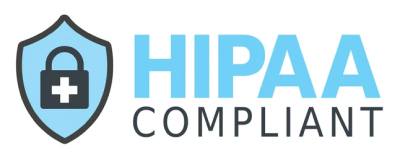Proper care of your child’s teeth and gums includes brushing and rinsing daily. It also includes having routine dental exams and getting necessary treatments such as fluoride, sealants, extractions, fillings, or braces, and other orthodontics.

Pediatric Dental Routine Care
What Does Routine Dental Care Entail? Visiting your dentist regularly for routine dental care simply means you visit your dentist for cleanings and checkups even if you are not facing any oral problems. It is common for many people to visit their dentist only when they have any oral conditions affecting them.
Thumb-Sucking
Along with favorite blankets, teddy bears, and nap time, thumb-sucking can be one of the most comforting aspects of childhood. Learn about thumb-sucking and how to break the habit.

Thumb Sucking Stats
According to a recent report, between 75% and 95% of infants suck their thumbs, so chances are there’s a thumb sucker (or a former thumb sucker) in your family. Is this cause for worry?
In most cases, the answer is no. However, it’s important to pay attention to your child’s habits in case his or her behavior has the potential to affect overall oral health.

What is normal thumb-sucking behavior?
Most children begin sucking their thumbs or fingers from a very young age; many even start inside the womb. Sucking is a natural reflex for an infant and it serves an important purpose. Sucking often provides a sense of security and contentment for a young one. It can also be relaxing, which is why many children suck their thumbs as they fall asleep.
According to the American Dental Association, most children stop thumb sucking on their own between the ages of two and four. They simply grow out of a habit that is no longer useful to them.
However, some children continue sucking beyond the preschool years (although studies show that the older a child gets, the lower the chances are of continuing the habit). If your child is still sucking when his or her permanent teeth start to erupt, it may be time to take action to break the habit.

When Is Thumb-Sucking An Issue?
First, take note of how your child sucks his or her thumb. If the sucking is passive, with the thumb gently resting inside the mouth, it is less likely to cause damage. If, on the other hand, the thumb sucking is aggressive, placing pressure on the mouth or teeth, the habit may cause problems with tooth alignment and proper mouth growth.
Extended sucking affects both the teeth and the shape of the face and may lead to a need for orthodontic treatment in the future.
If at any time you suspect your child’s thumb-sucking may be affecting his or her oral health, please give us a call and schedule a visit. We can help you assess the situation.

How to stop thumb-sucking?
Should you need to help your child end the habit, follow these guidelines:
- Always be supportive and positive. Instead of punishing your child for thumb sucking, give praise when he or she doesn’t.
- Put a band-aid on your child’s thumb or a sock over the hand at night. Let your little one know that this is not a punishment, but rather a way to help remember to avoid sucking.
- Start a progress chart and let your child put a sticker up every day that he or she doesn’t suck. If your child makes it through a week without sucking, he or she gets to choose a prize. When the whole month is full, reward your child with something great (a toy or new video game); by then the habit should be over. Making your child an active participant in his or her treatment will increase the willingness to break the habit.
- If you notice your child sucking when he or she is anxious, work on alleviating the anxiety rather than focusing on the thumb sucking.
- Take note of the times your child tends to suck (long car rides, while watching movies) and create diversions during these occasions.
- Explain clearly what might happen to the teeth if he or she keeps thumb sucking.
Whatever your method, always remember that your child needs your support and understanding during the process of breaking the habit of thumb sucking.
Infant Dental Care
Congratulations on the arrival of your baby! Are you prepared for the arrival of your baby’s first tooth? Follow these guidelines and your son or daughter will be on the way to a lifetime of healthy smiles!
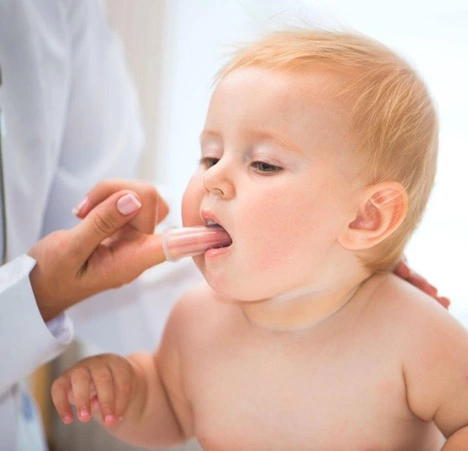
Caring for Gums
Even before your baby’s first tooth appears, the gums can benefit from your careful attention. After breast- or bottle-feeding, wrap one finger with a clean, damp washcloth or piece of gauze and gently rub it across your baby’s gum tissue.
This practice both clears your little one’s mouth of any fragments of food and begins the process for building good daily oral care habits.
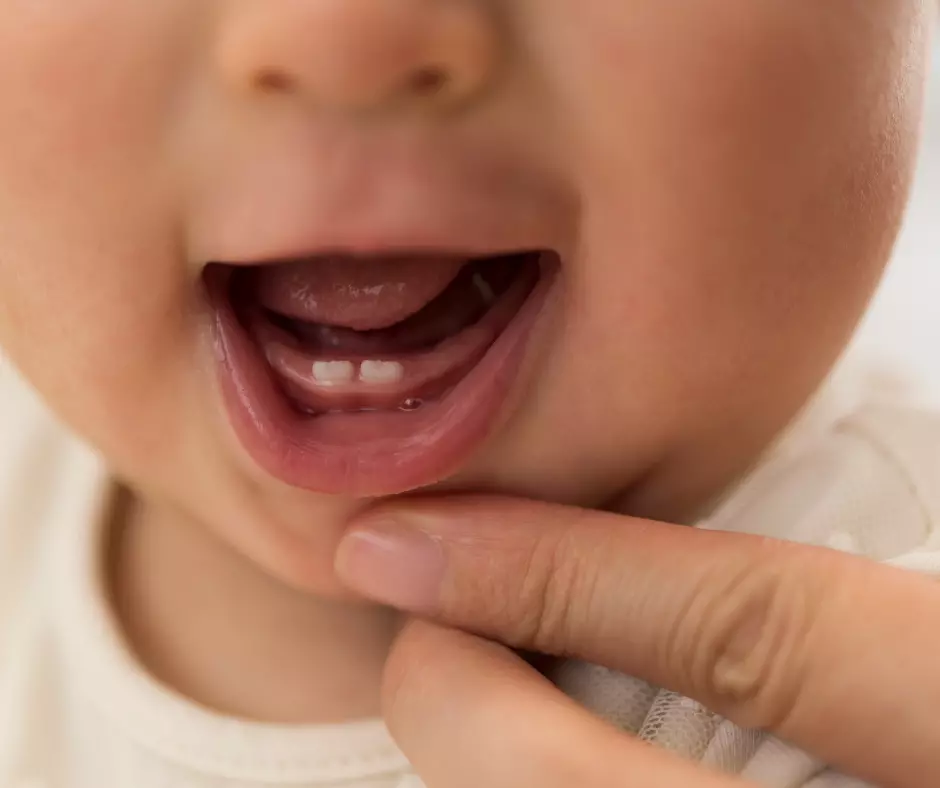
Baby’s First Tooth
When that first tooth makes an entrance, it’s time to upgrade to a baby toothbrush. There are usually two options: a long-handled toothbrush that you and your baby can hold at the same time, and a finger-puppet-like brush that fits over the tip of your pointer finger. In each case, the bristles are soft and few.
At this stage, toothpaste isn’t necessary; just dip the brush in water before brushing. If your little one doesn’t react well to the introduction of a toothbrush, don’t give up. Switch back to a damp washcloth for a few months and try the toothbrush again. During the teething process, your child will want to chew on just about anything, and a baby toothbrush with a teether can become a favorite toy during this period.
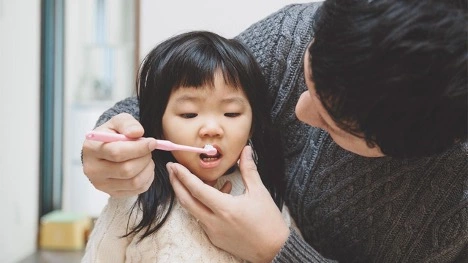
Brushing with Toothpaste
When a few more teeth appear, you can start using toothpaste with your child’s brush. However, for the first two years, be sure to choose toothpaste that does not contain fluoride, unless advised to do so by your dentist, because too much fluoride can be dangerous for youngsters.
At this stage, use only a tiny amount of toothpaste. From the beginning, have your little one practice spitting the toothpaste out after brushing to prepare for fluoride toothpaste, which should not be swallowed at any age.
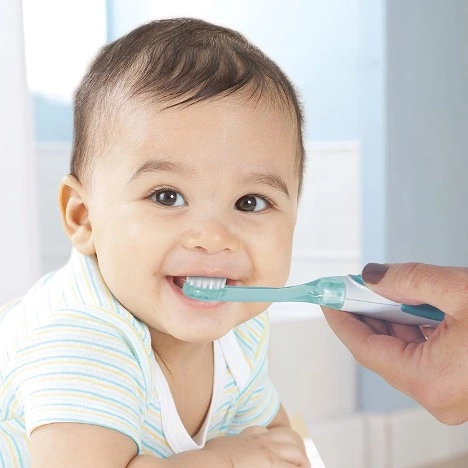
Avoiding Cavities
Don’t give your baby any sort of sweetened liquids such as flavored drinks or soda. Even the sugars present in fruit juice, formula, and milk (this goes for breast milk as well) can cause decay, so regular teeth and gum cleaning is vital.
Also, make sure your baby never goes to bed with a bottle; sugary liquids in prolonged contact with teeth are a guarantee for early-childhood decay, also called baby-bottle caries.
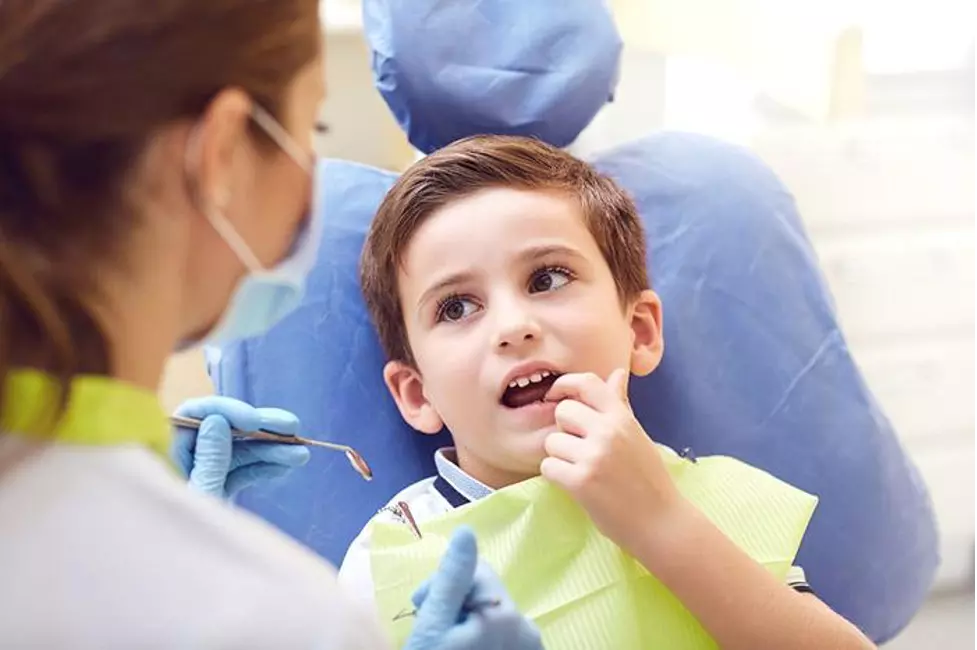
First Visit to the Dentist
Providing you are practicing good oral health practices for your child at home, it is recommended that you bring your child in for a happy visit between three and four years old. At this age your child will be more receptive to their first dental visit.
Often it is good to have them watch a sibling or parent visit for a short time to get acquainted with the office and staff. We’ll look for any signs of early problems with your baby’s oral health, and check in with you about the best way to care for your little one’s teeth.
Remember that preparing for each dental visit with a positive attitude goes a long way toward making your child comfortable with regular checkups.

Setting a Good Example
As part of the natural learning process, little ones are expert mimics, and you can take advantage of this talent. Brush and floss daily while your child is watching, and he or she will intuit at an early age the importance of your good habits.
As soon as your child shows interest, offer a toothbrush of his or her own and encourage your toddler to “brush” with you. (You’ll find toothbrushes with chunky, short handles that are easy to grip.)
Most children don’t have the dexterity necessary to thoroughly clean their own teeth until they’re about six or seven, so you’ll have to do that part of the job. Try different tactics to make brushing fun: flavored toothpaste, a toothbrush with a favorite character on it, or singing songs about brushing.
The primary goal is to instill healthy oral habits at an early age to set your child up for a lifetime of healthy, cavity-free teeth.
